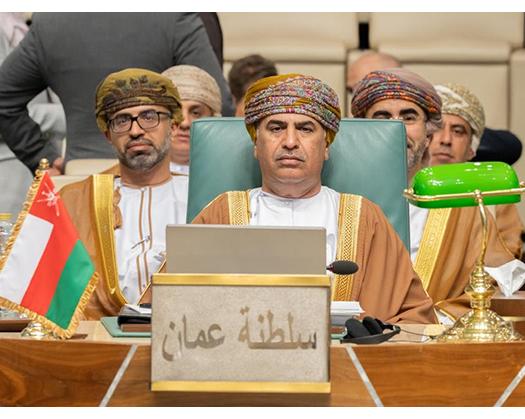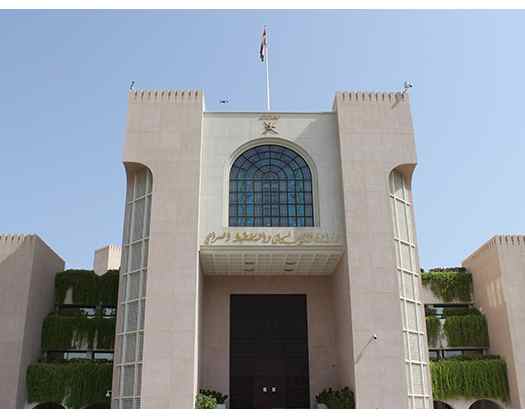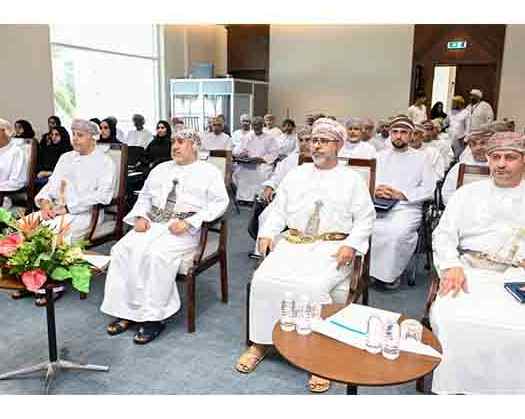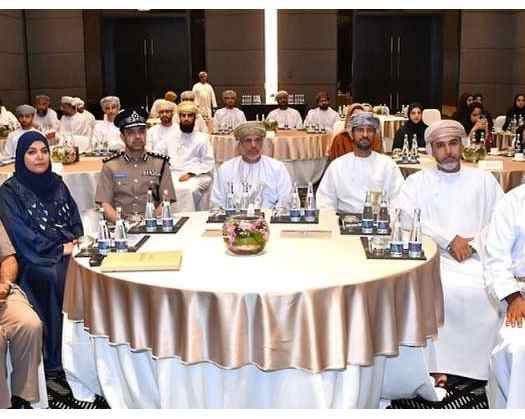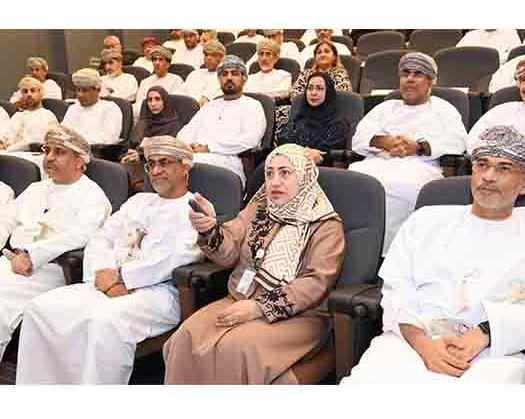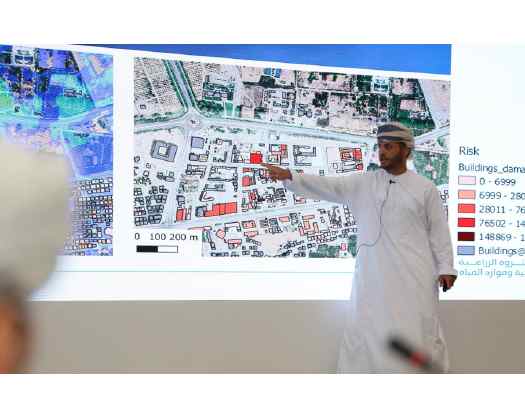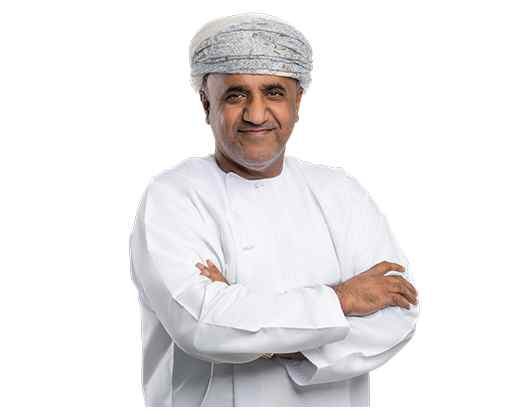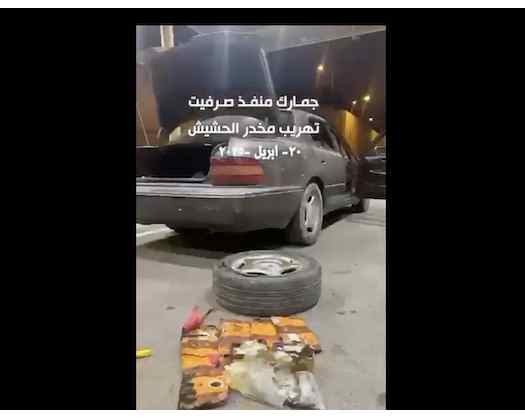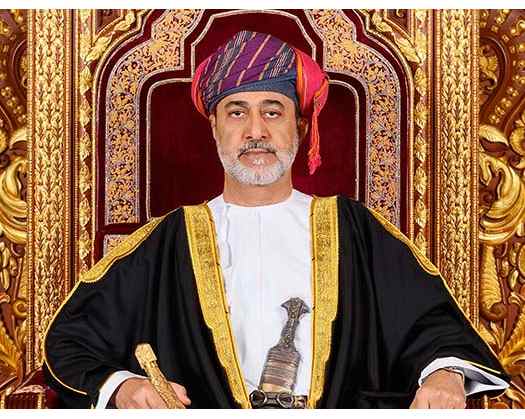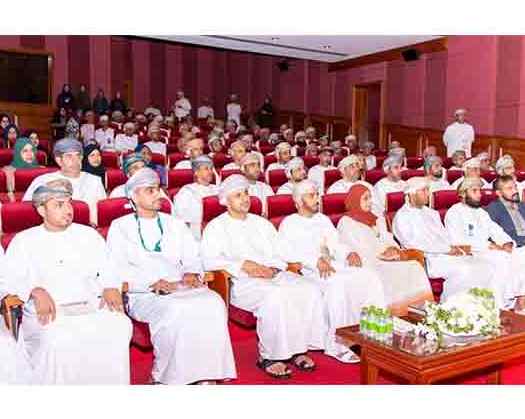Muscat: The Sultanate of Oman, represented by the State Audit Institution (SAI), is actively participating in the Fifth Session of the Conference of the States Parties to the Arab Convention against Corruption. This conference, held at the headquarters of the Secretariat General of the League of Arab States in Cairo, has attracted a wide international audience, including Anti-Corruption Authorities from signatory states, representatives from Supreme Audit Institutions, international organizations, civil society institutions, universities, and professional institutions.
Leading the delegation from the Sultanate of Oman is Sheikh Ghuson bin Hilal Al-Alawi, Chairman of the State Audit Institution, accompanied by a team of specialists. During the session, Sheikh Ghuson delivered a speech on behalf of the Sultanate of Oman, expressing gratitude to the Secretariat General of the League of Arab States for the generous invitation extended to the State Audit Institution. He commended the Secretariat General for their efforts in implementing the decisions of the previous session and their meticulous preparations for this conference.
Sheikh Ghuson emphasized the unwavering support of the Sultanate of Oman for the Palestinian people, pledging to utilize all political and legal means to establish justice, peace, and put an end to the suffering of innocent Palestinians. He also stressed the importance of achieving a just and lasting solution to restore security, stability, and comprehensive peace to the entire region.
Furthermore, the Chairman of SAI highlighted Oman's commitment to exchanging experiences with other Arab states to enhance joint Arab cooperation in promoting integrity and combating corruption. Recognizing the significant impact of these efforts on achieving comprehensive development at both local and regional levels, Oman remains dedicated to fostering a culture of transparency and accountability.
The Sultanate of Oman is committed to fulfilling its obligations and initiatives under the Arab Anti-Corruption Convention. Since joining the United Nations Convention against Corruption in 2013, Oman has been dedicated to achieving the Convention's objectives. The country has been actively working to combat and prevent corruption, promote integrity, and ensure accountability in public affairs and properties.
Oman is currently focused on implementing the National Integrity Promotion Plan 2022-2030. This plan has been developed by studying regional and international experiences in national strategies and is guided by publications from reputable international organizations.
The Chairman of SAI emphasized Oman's unwavering support for all efforts aimed at combating corruption in its various forms. The country is determined to limit the spread of corruption and work towards justice, equality, and a better quality of life for all Arab peoples.
During the Fifth Session of the Conference of States Parties to the Arab Convention against Corruption, several important themes were discussed. These included reviewing the Secretariat General's report on the implementation of decisions made during the Fourth Session of the Conference. Additionally, the session involved examining the recommendations put forth by the First Session of the team responsible for reviewing the optimal implementation of the Arab Convention against Corruption, which took place at the headquarters of the Secretariat General of the Arab League in September 2022.
During the session, the States Parties also deliberated on the recommendations put forth by the Second Session of the team tasked with reviewing the optimal implementation of the Arab Convention against Corruption. Additionally, they discussed the recommendations from the fifth meeting of the open-ended committee of government experts and representatives of independent bodies in the States parties to the Arab Convention against Corruption, which took place in September 2023.
The session concluded with a discussion on the drafts submitted by the States Parties. These drafts included a resolution proposal to establish a mechanism for submitting draft resolutions, an amendment to the reference framework of the mechanism for reviewing the implementation of the Convention, and an Arab protocol supplementary to the Arab Anti-Corruption Convention that focused on cooperation in the recovery of funds derived from corruption and smuggled abroad. Furthermore, a draft mechanism for monitoring integrity indicators in the procedures applied in the public sector, through the analysis of information provided by the States parties to the Convention, was also discussed. Lastly, a draft decision to establish the Council of Heads of Law Enforcement Agencies concerned with integrity and anti-corruption in the States parties to the Arab Convention against Corruption was addressed.
On the sidelines of the Conference, His Excellency Sheikh Ghuson bin Hilal Al-Alawi, Chairman of the State Audit Institution, held meetings with several heads of peer SAIs in the Gulf Cooperation Council States, as well as some brotherly and friendly States. These meetings focused on reviewing topics related to audit aspects, areas of promoting integrity and combating corruption, existing cooperation, and ways to further develop it in order to serve common interests and facilitate the sharing of experiences.
It is important to note that the Arab Convention against Corruption came into effect in June 2013. The Sultanate of Oman ratified the Convention through the issuance of Royal Decree No. 28/2014 on May 21, 2014, demonstrating its belief in the significance of Arab cooperation in preventing and combating corruption.
The Convention aims to implement strategies to prevent, fight, and uncover corruption in its various manifestations, as well as to prosecute any other offenses associated with it. It also strives to strengthen Arab collaboration in this area, while fostering values such as integrity, transparency, accountability, and the rule of law. Furthermore, it encourages active participation from individuals and civil society organizations in the efforts to prevent and combat corruption.

